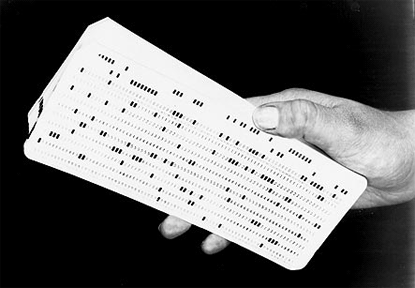The event that triggered World War III was a rubber band that broke.
The lifespan of an individual rubber band is difficult to calculate a priori. Rubber is vulnerable to ozone (air pollution, electric motors), UV light (sunlight, fluorescent lamps) and oils (hand lotions, mechanic's hands, foods).
The rubber band in Fail-Safe was around a stack of Hollerith cards at SAC Headquarters. The stack of cards fell to the ground. The technician gathered them up and re-ordered them. The tech either missed a card or did not re-order them with 100% accuracy.
The cards were processed and the United States launched a B-52 Stratofortress loaded with America's finest Hydrogen bombs on a mission to bomb Moscow.
In hindsight, it sounds like poorly written comedy. In fact, it was read on both sides of the Iron Curtain as an all-too-believable scenario of the beginnings of WWIII.
Radio buttons
Radio buttons are the new rubber band.
Radio buttons are fast. They are easy for the user to implement (no typing). They are efficient for a database to process (no human intervention on that end).
Radio buttons have a high failure rate when inputs are configural or when significant amounts of text must be embedded around them to clarify subtle distinctions between the choices. The failure rate associated with text is not surprising. Computer screens suck for proof reading, perhaps due to the difficulties in navigating beyond the screen that is currently displayed.
Why do I care?
Yesterday I was drinking coffee with my retired buddies and the subject of medical bills came up.
One fellow went into his doctor's office to take issue with some fee....and he was assessed the cost of another doctor's visit ($120) and the price of a urine analysis (????). Somebody had gotten into the billing program and hits some radio buttons attempting to make adjustments. Like the tech who dropped the cards in Fail-Safe, they guessed wrong.
Another fellow, me, had blood work done two weeks prior to my annual physical. The Phlebby Tech hit the billing radio button for "screening" and stuck me with a $260 bill. While it is a "screening", it is paid for by the insurance company if it is under the umbrella of "annual physical". The billing is configural.
Another person had a colonoscopy. Their GI specialist told them they should have a lower GI every five years based on prior results. Time got away from them and it had been 14 years. They, too, got whacked with bills because the billing specialist coded it as a "screening". It was messy because they were billed individually by the anesthesiologist, the surgeon and the operating room. They are all separate "profit centers".
Many of the medical centers seem to be migrating toward tablets with touch screens. They are portable and much easier to sanitize with chemicals than letter keys and mouses. They are also more vulnerable to spurious entry.
Integrated care
I understand the need to integrate medical care. I understand the role that computers can play in that. Central Minnesota provides medical care for one-third the cost of medical care in Southern Florida. Much of that economy is due to the consolidation of medical history on a by-patient basis.
But the billing side of the shift to software really sucks for the patients. We are not getting paid $68,000 a year to call insurance companies, be put on hold, and then argue with the insurance companies billing specialist for twenty minutes. We don't know the jargon. We don't know the rules. It is even worse for non-retirees....at least we have the time.

The bigger problem today is that the 'button pushers' have NO idea how to fix the problems they've created. A three hour class doesn't substitute for actual knowledge of the back office interactions.
ReplyDeleteThe bigger problem today is that the 'button pushers' have NO idea how to fix the problems they've created. A three hour class doesn't substitute for actual knowledge of the back office interactions.
ReplyDelete